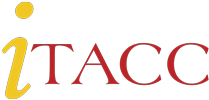Project Name
Culturally Responsive Advisory Group
Type of practice
Emerging practice (new, innovative and hold promise)
Area of Emphasis
Formal and informal community supports
Project/activity years
2022
2021
Population of focus
People with intellectual and developmental disabilities
Families of people with ID/DD
Unserved and underserved (by Racial and ethnic minority backgrounds)
Unserved and underserved (by language access (English as a second language)
Strategies used
Outreach
Training
Supporting and Educating Communities
Barrier Elimination, Systems Design, and Redesign
Informing Policymakers
Demonstration of New Approaches to Services and Supports)
Project Description
The Culturally Responsive Advisory Group (CRAG) is made up of individuals with intellectual and developmental disabilities and family members from the Latino community. The CRAG was established to ensure the Community NOW! system change efforts include the involvement and perspective of Latino family members and individuals. The group meets before and after every Community NOW! meeting. Pre-meetings are intended to review materials and prepare for an upcoming Community NOW! meeting. The post-meetings are used to check for understanding and collect recommendations not voiced during the Community NOW! meeting. The Council has been intentionally working with two specific Spanish language interpreters over the long-term to build their disability related vocabulary and understanding of the developmental disability service system.
Members of the CRAG expressed a need for the Spanish speaking community to have basic information in Spanish about specific intellectual and developmental disabilities. The Council met this need with direction from CRAG members and created twelve information sheets in Spanish; these information sheets provided specific information about diagnosis and developmental milestones for many types of developmental disabilities. The Council supports CRAG members with the distribution of these information sheets in Latino organizations and with faith-based organizations who serve the Spanish speaking community throughout southwestern Idaho.
CRAG members and Council staff met with the Director of the Idaho Department of Health and Welfare and the Medicaid Administrator to discuss the need for culturally and linguistically responsive services. CRAG members shared the work of the Council and the work that the Culturally Responsive Advisory Group has been doing with local churches and Latino led conferences. CRAG members provided relevant personal experiences related to the lack of language access and how that lack of access impacts the ability to receive an early diagnosis and early intervention for children with developmental disabilities. Additionally, CRAG members spoke about their lack of access to interpreters or having bilingual Department staff to assist with questions and navigating the system. In some cases, families were found ineligible due to the language barrier. The lack of language access results in families not understanding what is being asked of them when describing the needs of their children. CRAG members provided exemplary leadership speaking to their lived experiences trying to access services, the lack of bilingual service coordination or support brokerage, and the need for bilingual staff to be hired within the various levels of the Department of Health and Welfare.
Impact (or impact-to-date) of the project/activity for people with ID/DD and their families
During the first few years of the CRAG, the focus was mainly only increasing members’ knowledge and understanding of the service system. During training sessions CRAG members learned about the developmental disability services available in our state. As their knowledge and understanding grew, they began to gain confidence, leadership skills, and actively voiced the perspective of the Latino community during Community NOW! meetings. With these gains in their knowledge and leadership, came the desire to conduct outreach with their community. CRAG members are currently attending events in the Latino community on a regular basis, and sharing information about the Council, developmental disabilities, and services with members in the community.
Story
Story perspective
Person with ID/DD
Family of a person with ID/DD
What were things like BEFORE you/your family/partner/community participated in the project/activity?
Most CRAG members, and Latino community members in general, did not have a full understanding of developmental disability services in the state. With origins in countries that did not have such a service system, many Latino community members did not know about services available to them and how to access the services.
What are things like AFTER you/family/partner/community participated in the project/activity?
CRAG members have a much better understanding of the developmental disability service system. They are now sharing their knowledge with other community members.
In addition, CRAG members have developed into state leaders. They confidently meet with policymakers to provide their perspective.
What was most beneficial to you/family/partner/community from participating in this project or practice?
Over the years, CRAG members have grown their confidence and leadership. A parent shared: “Okay, I do consider myself [a leader]. Because I enjoy defending the rights of others. I want to fight for those who can’t. I want to be the voice of those who do not speak. I want to be the feet of those who don’t walk, the ears of those who can’t hear. I want to be their voice; I want to be everything for those who can’t. That’s why I want to be a leader, I want to be heard.”
Summary statement that highlights the role of the DD Council in achieving positive outcomes through this project.
Through years of outreach, education, and leadership development, the Council has supported a group of leaders from the Latino community who are now conducting outreach and providing information and education in their communities.
Contact Information
Name: Miguel Juarez
Email: Miguel.Juarez@icdd.idaho.gov
Council location: Idaho
